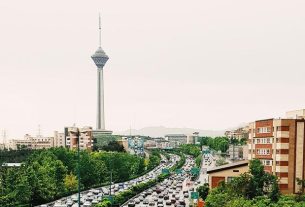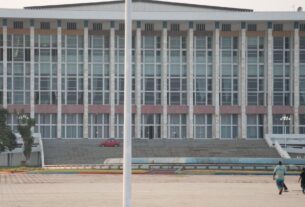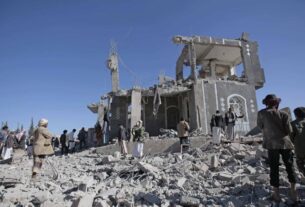|
Getting your Trinity Audio player ready...
|
CALAIS, France — August 18, 2025 — Two migrant deaths over the weekend have reignited calls for safer migration routes and more compassionate treatment of asylum seekers along Europe’s borders. On Friday, the body of a man was discovered near a canal in Calais, while on Sunday, another man reportedly died by suicide in one of the informal camps near the French port city.
Authorities have not released the identities of the deceased, but local humanitarian organizations say both individuals were migrants from Africa, part of the growing number of people attempting to reach the United Kingdom via the English Channel. The deaths bring renewed attention to the perilous conditions faced by thousands living in makeshift camps in northern France.
🚨 A System Under Strain
The Calais region has long been a focal point of Europe’s migration crisis, with hundreds of displaced individuals—many from Eritrea, Sudan, and other conflict-affected African nations—residing in temporary shelters or open-air encampments. These camps are often marked by inadequate sanitation, limited access to medical care, and frequent police raids.
Human rights advocates argue that current border enforcement policies contribute to a climate of fear and desperation.
“The border exhausts, harasses, sorts, and kills,” said a spokesperson from Utopia 56, a French humanitarian group active in the region.
The suicide on Sunday is being investigated by French authorities, but aid workers say it reflects the psychological toll of prolonged displacement, uncertainty, and lack of legal pathways to safety.
🧭 African Voices and Continental Implications
African governments and civil society organizations have increasingly called for coordinated international responses to protect migrants abroad. The African Union has urged European partners to uphold the dignity and rights of African nationals seeking asylum, emphasizing the need for bilateral cooperation on migration governance.
The deaths in Calais also highlight the broader consequences of global inequality, conflict, and climate displacement—drivers that continue to push individuals to seek refuge far from home. For many, the journey to Europe is not a choice but a last resort.
🕊️ A Call for Change
Humanitarian groups are demanding the establishment of safe and legal routes for asylum seekers, improved camp conditions, and an end to punitive border practices.
“These lives were lost not just to geography, but to policy,” said a local aid worker. “It does not have to be this way.”
As Europe grapples with migration policy reform, the African continent remains a critical stakeholder in shaping a future where mobility is managed with dignity, and sanctuary is not a privilege but a right.



